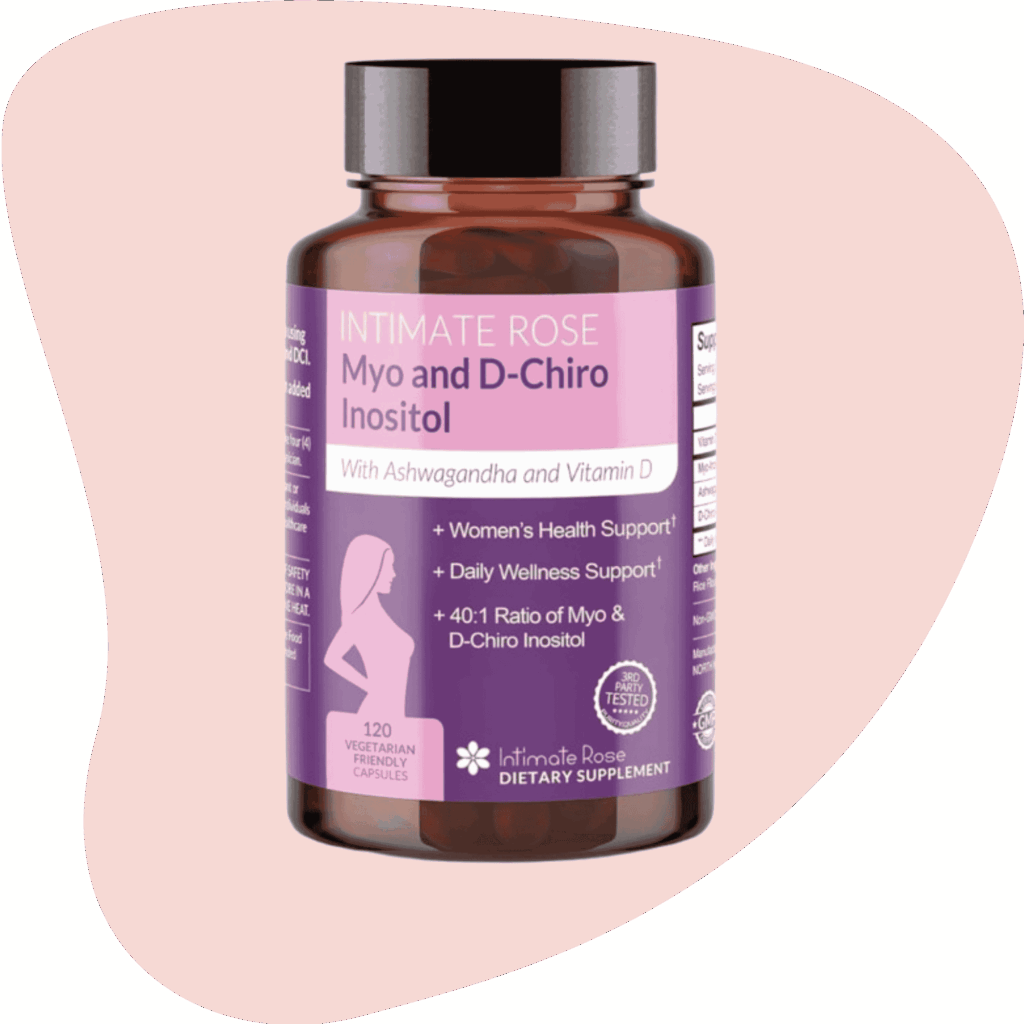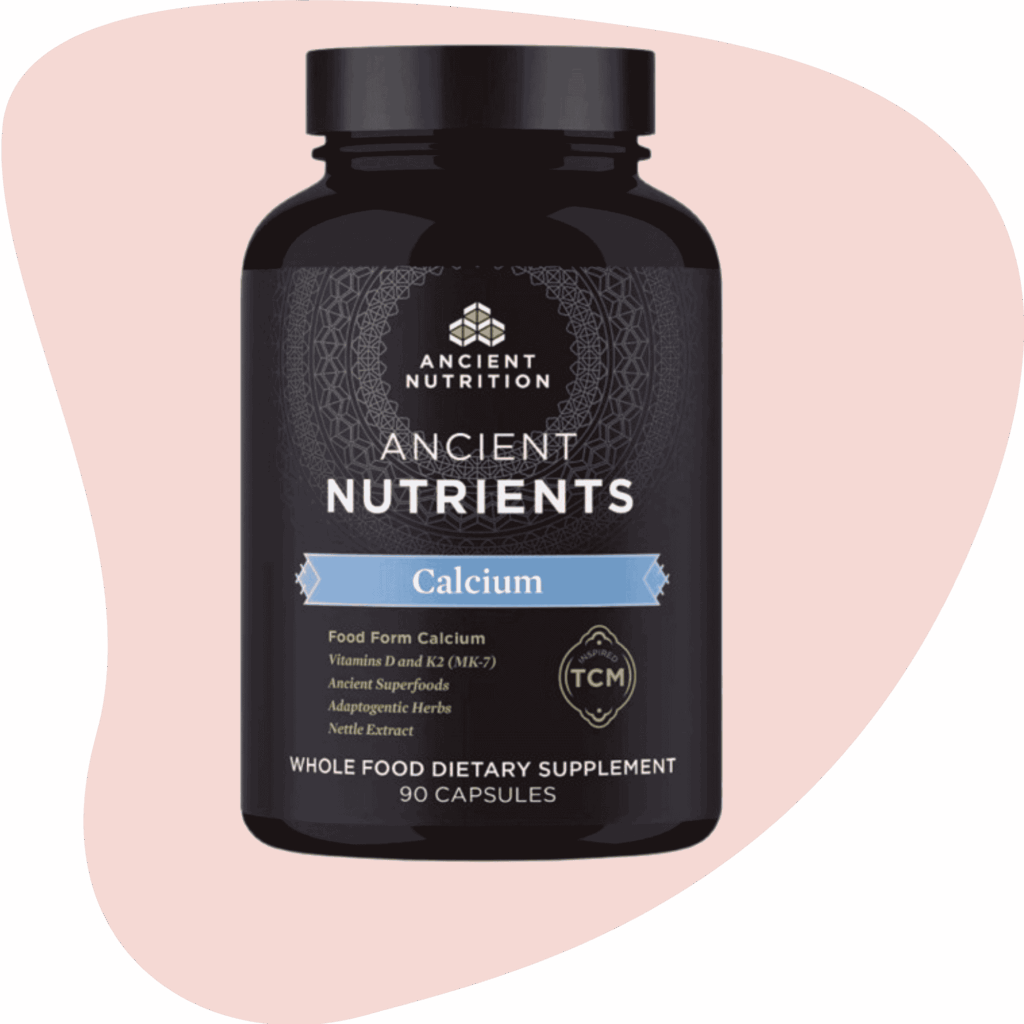If you’re struggling with the ups and downs of PCOS, you’ve likely been frustrated by endless insulin spikes, stubborn weight gain, and irregular periods. Try the low carb diet for PCOS, a scientific approach that focuses on insulin resistance—the root cause of hormonal chaos—and transforms it into a path to sustainable weight loss, clearer skin, and renewed fertility.
Imagine blood sugar stabilization so effectively that those energy fluctuations become a distant memory. Imagine your body burning stored fat as its primary fuel, instead of storing every extra carb as excess belly weight. With the right balance of protein, healthy fats, and low-glycemic vegetables, the low carb diet for PCOS can help you regain control of your hormones, support regular ovulation, and finally see the scales move in the direction you want.
In this article, we’ll unravel the mystery of how low-carb diets affect insulin and androgen levels, share practical tips for meal planning, and offer quick solutions to overcome common obstacles you may face. Whether you’re a low-carb beginner or a keto diet expert, get ready to discover practical strategies that make living well with PCOS not only possible but enjoyable.
Low Carb Diet for PCOS: A Game‑Changer for Hormone Balance and Fertility
A targeted Low Carb Diet for PCOS can dramatically improve insulin sensitivity, rebalance hormones, and boost fertility by stabilizing blood sugar and reducing inflammation. Clinical trials, expert guidelines, and patient stories all point to carbohydrate restriction—whether moderate (< 130 g/day) or ketogenic (< 50 g/day)—as a cornerstone of PCOS management. This approach not only promotes weight loss but also normalizes androgen levels, restores menstrual regularity, and enhances metabolic health. Below, discover the key mechanisms, benefits, meal‑planning tips, and pitfalls to avoid on your PCOS journey.
Why Low Carb Diet for PCOS Works
Reducing carbs lowers blood sugar spikes, cuts insulin demand, and breaks the vicious PCOS cycle of hyperinsulinemia and excess androgens. (1)
Studies show ketogenic and very low‑carb diets improve insulin resistance by up to 45% in women with PCOS. (2, 3)
Lower insulin translates to reduced testosterone, fewer acne flares, and more regular ovulation. (4)
Hormonal and Metabolic Benefits
- Weight & Body Composition: Significant reductions in visceral fat, a PCOS hallmark. (5)
- Hormonal Balance: Improved LH/FSH ratios and higher ovulation rates after 6–12 weeks. (6, 7)
- Cardio‑Metabolic Health: Better lipid profiles (↑HDL, ↓triglycerides) and lower inflammatory markers like CRP. (8, 9)
Choosing Your Carb Target
Moderate Low‑Carb (50–130 g/day)
- Eases transition, still flattens glycemic curves. (10)
- Works well for those exercising intensely or prone to fatigue.
Very Low‑Carb/Ketogenic (< 50 g/day)
- Drives ketosis, offering maximum insulin control and rapid fat loss. (11)
- Requires careful monitoring of electrolytes to avoid “keto flu.”
Meal Planning Made Simple
Each meal should pair protein, healthy fats, and fiber‐rich veggies:
- Proteins: Eggs, chicken, tofu, fish.
- Fats: Olive oil, avocado, nuts. (12)
- Veggies: Spinach, broccoli, zucchini.
Sample 1,400 kcal Day:
- Breakfast: Spinach‐feta omelet with avocado slices.
- Lunch: Grilled salmon salad with mixed greens & olive oil.
- Snack: Celery sticks + almond butter.
- Dinner: Zucchini noodles with pesto & grilled shrimp.
Avoiding Common Pitfalls
- Electrolyte Imbalance: Supplement sodium, magnesium, and potassium to prevent fatigue and headaches. (13)
- Digestive Upsets: Boost fiber gradually via chia, flax, and leafy greens.
- Long‑Term Adherence: Rotate carb targets to prevent burnout and hormonal setbacks. (14)
Understanding PCOS and Diet
Diet is a cornerstone in managing PCOS because it directly influences insulin resistance, hormonal balance, and inflammation—all key drivers of the syndrome. Cutting back on high‑glycemic carbs and embracing nutrient‑dense, anti‑inflammatory foods can restore ovulation, improve metabolic health, and reduce PCOS symptoms. Below, explore how PCOS develops, why carbohydrates matter, and how targeted dietary changes lay the foundation for better hormone health and fertility.
What Is PCOS and Why Does Diet Matter
Polycystic Ovary Syndrome (PCOS) affects up to 10% of women of reproductive age, causing irregular cycles, excess androgens, and ovarian cysts. (15)
Though exact causes vary, insulin resistance drives many PCOS traits: high insulin levels boost androgens, disrupt ovulation, and promote weight gain. (16)
Nutrition shapes these pathways—what you eat triggers blood sugar spikes, inflammatory cascades, and hormonal feedback loops. (17)
Insulin Resistance and Carbs
Carbohydrates break down into glucose, prompting insulin release to shuttle sugar into cells.
In PCOS, cells respond poorly to insulin, so the pancreas overcompensates—higher insulin → more testosterone → fewer eggs released.
High‑GI foods (white bread, sugary drinks) exacerbate this: they spike glucose and worsen insulin resistance. (18)
A strategic cutback on such carbs—central to a Low Carb Diet for PCOS—flattens blood sugar curves, easing pancreatic stress. (19)
Inflammation’s Role
Women with PCOS often show chronic low‑grade inflammation, which magnifies insulin resistance and ovarian dysfunction. (20)
Pro‑inflammatory diets (high in processed meats, refined sugars) worsen markers like CRP and IL‑6.
Conversely, anti‑inflammatory patterns (e.g., a Mediterranean diet rich in olive oil and fish) correlate with lower PCOS risk and better metabolic outcomes. (21)
Key Nutrients and Food Groups
- Fiber: Slows glucose absorption—found in non‑starchy veggies, legumes, and flaxseed. (22)
- Omega‑3s: From fatty fish or supplements, they ease inflammation and may lower testosterone.
- Magnesium & Zinc: Support insulin function and ovarian health; often low in PCOS diets.
- Low‑GI Fruits: Berries and apples deliver antioxidants without a huge sugar load. (23)
Beyond Diet: Lifestyle Synergy
While nutrition is pivotal, exercise, sleep, and stress management amplify benefits. (24)
- High‑intensity interval training (HIIT) and strength work improve insulin sensitivity.
- Quality sleep down‑regulates cortisol, which otherwise fuels insulin resistance and weight gain.
- Mind‑body practices (yoga, meditation) curb inflammation and support hormone balance.
Putting It All Together
An integrated approach—focusing on a targeted Low Carb Diet for PCOS, anti‑inflammatory foods, and supportive lifestyle habits—lays the groundwork for restored cycles, better metabolic health, and enhanced fertility. (25)
Partner with a healthcare provider or dietitian to personalize carbohydrate targets, ensure nutrient adequacy, and monitor progress safely. (26)
By understanding the interplay between PCOS pathophysiology and diet, you can harness nutrition as your most powerful ally in reclaiming hormone health and vitality.
Science Behind a Low Carb Diet for PCOS
A targeted exploration of the Low Carb Diet for PCOS reveals how carbohydrate restriction directly combats insulin resistance, modulates key reproductive hormones, and quells chronic inflammation—three pillars of PCOS pathology. Clinical trials demonstrate substantial improvements in fasting insulin, LH/FSH ratios, and inflammatory markers within weeks of adopting either moderate low‑carb (< 130 g/day) or ketogenic (< 50 g/day) protocols. Mechanistic studies further show that lower glucose loads reduce insulin surges, while ketone bodies exert anti‑inflammatory and ovulation‑supporting effects. Below, dive into the science powering this dietary strategy and its real‑world impact. (27, 28, 29, 30)
How Low‑Carb Targets Insulin Resistance
- Carbohydrates break down into glucose, prompting insulin release to shuttle sugar into cells.
- In PCOS, insulin receptors become less responsive, so the pancreas overproduces insulin, driving excess androgen synthesis in the ovaries. (31)
- A Low Carb Diet for PCOS flattens post‑meal glucose curves, which lowers insulin peaks and breaks the cycle of hyperinsulinemia.
- Meta‑analyses report significant reductions in HOMA‑IR and fasting insulin after 12 weeks on low‑carb regimens. (32)
Ketosis and Hormonal Shifts
- Very low‑carb intake (< 50 g/day) induces nutritional ketosis, raising circulating ketone bodies like β‑hydroxybutyrate.
- Ketones act as signaling molecules, downregulating inflammatory pathways (e.g., NF‑κB) and improving insulin sensitivity. (33)
- Studies show improved LH/FSH ratios and reduced free testosterone in women with PCOS after 6–8 weeks of a ketogenic diet. (34)
- Enhanced ovulation rates and menstrual regularity often follow as androgen levels normalize.
Anti‑Inflammatory Effects
- PCOS is marked by chronic low‑grade inflammation, evidenced by elevated CRP, IL‑6, and TNF‑α. (35)
- Carbohydrate restriction reduces glycemic variability, which lowers pro‑inflammatory cytokine release. (36)
- Weight loss from low‑carb diets further diminishes adipose‑derived inflammation, enhancing metabolic and reproductive outcomes. (37)
- Comparative studies find lower CRP levels in PCOS patients following low‑carb versus low‑fat interventions.
Clinical Evidence and Trials
- A 2005 pilot on ketogenic diets in PCOS showed significant drops in body weight, fasting insulin, and LH/FSH ratio after 24 weeks.
- The KEMEPHY trial reported improved lipid profiles, glucose control, and hormonal markers in overweight PCOS women on a modified ketogenic plan.
- A recent randomized protocol is investigating whether very low‑carb diets outperform DASH diets in symptom relief and metabolic control. (38)
- Systematic reviews confirm that low‑carb approaches produce greater insulin‑sensitivity gains than low‑fat diets in PCOS cohorts.
Mechanistic Insights and Future Directions
- Lower glucose and insulin levels relieve ovarian theca cells from hyperstimulation, reducing androgen overproduction.
- Ketone‑mediated epigenetic changes may upregulate SHBG production, further lowering free testosterone.
- Emerging data suggest gut‑microbiome shifts on low‑carb diets could modulate systemic inflammation and hormonal signaling. (39)
- Ongoing trials will clarify optimal carb thresholds and dietary compositions for long‑term PCOS management.
By understanding these interconnected mechanisms—involving insulin dynamics, ketone signaling, and inflammatory modulation—you see why a well‑formulated Low Carb Diet for PCOS stands as a scientifically grounded, effective strategy for restoring hormone balance and promoting reproductive health.
Benefits You’ll Love
Embracing a Low Carb Diet for PCOS delivers a spectrum of life‑changing benefits, from swift weight loss and improved body composition to deeper hormonal harmony, enhanced metabolic health, and even boosted fertility. Backed by clinical trials, expert guidelines, and patient reports, this dietary strategy targets the root drivers of PCOS—insulin resistance, inflammation, and androgen excess—yielding rapid symptom relief and sustainable health gains. Dive into the key advantages you can experience when you adopt a well‑formulated low‑carb plan.
Weight Loss & Body Composition
A low‑carb approach typically outpaces standard diets for reducing visceral fat, the harmful belly fat tied to PCOS complications.
By minimizing blood sugar spikes, it curbs insulin surges, encouraging your body to burn stored fat for energy.
In one study, women with PCOS on a ketogenic plan lost an average of 8% of their body weight over 12 weeks.
Preserving lean muscle is another perk, thanks to higher protein intake, which boosts metabolism and shapes a toned silhouette.
Hormonal Harmony
Reducing carbs lowers insulin levels, which in turn decreases ovarian androgen production, key to reducing acne, unwanted hair growth, and scalp hair thinning.
Clinical evidence shows improvements in LH/FSH ratios—a marker of ovulation—in as little as 6–8 weeks on a very low‑carb diet.
Lower free testosterone and higher sex hormone‑binding globulin (SHBG) have been documented, restoring more regular menstrual cycles. (40)
Patients often report brighter skin, reduced facial hair, and a more predictable cycle within two months of starting the diet. (41)
Metabolic Health Upgrades
Low Carb Diet for PCOS significantly improves lipid profiles, raising “good” HDL cholesterol while lowering triglycerides and LDL particles.
Fasting insulin and HOMA‑IR scores drop substantially, indicating restored insulin sensitivity and a lower risk of type 2 diabetes.
Inflammation markers such as C‑reactive protein (CRP) decrease, reducing cardiovascular risks common in PCOS sufferers. (42)
Participants in long‑term low‑GI trials also saw better blood pressure control, likely from weight loss and improved vascular function.
Fertility & Reproductive Gains
By rebalancing hormones, low‑carb diets have been linked to higher ovulation rates and improved fertility outcomes.
In one meta‑analysis, women on low‑carb interventions experienced twice the odds of achieving pregnancy compared to standard diets.
Return of regular menses was observed in 40–50% of participants within three months, often after years of irregular cycles.
Experts recommend pairing dietary changes with inositol and vitamin D supplementation for optimal reproductive support. (43)
Quality of Life Enhancements
Beyond measurable health markers, many women report sharper mental clarity, stabilized energy, and fewer cravings on a low‑carb plan.
Improved sleep quality and reduced mood swings are also common, thanks to balanced blood sugar and lower inflammation. (44)
Feeling empowered by structured meal plans often leads to better long‑term adherence and self‑confidence in managing PCOS.
By harnessing these multifaceted benefits you’ll love, a targeted Low Carb Diet for PCOS becomes more than a diet—it’s a transformative lifestyle that tackles the core of PCOS and empowers you to reclaim your health and fertility.
Choosing Your Carb Threshold
Choosing the right carbohydrate threshold is pivotal when implementing a Low Carb Diet for PCOS, as it balances symptom relief with long‑term sustainability and energy needs. Women with PCOS often benefit from staying under 130 g/day of carbs, while those targeting deeper hormonal shifts may aim for under 50 g/day to induce nutritional ketosis. A moderate approach (50–130 g/day) flattens blood sugar curves without extreme restriction, whereas a very low‑carb or ketogenic plan (< 50 g/day) maximizes insulin reduction and inflammatory control but demands careful monitoring. Below, explore practical guidelines, pros and cons, and personalized strategies to select the carb range that works for you.
Why Carb Thresholds Matter
Defining your daily carbohydrate limit directly impacts insulin secretion, androgen production, and inflammatory markers—core drivers of PCOS pathology. (45)
Too many carbs (> 130 g/day) can perpetuate insulin spikes and hormonal imbalances, while overly restrictive intakes (< 20 g/day) may cause nutrient shortfalls and fatigue. (46)
A tailored threshold ensures you reap the benefits of an Low Carb Diet for PCOS—weight loss, hormonal harmony, and improved fertility—without undue side effects. (47)
Moderate Low‑Carb (50–130 g/day)
- Overview: This range aligns with broadly defined low‑carb diets and is easier to adopt long‑term.
- Benefits:
- Ideal For:
- Considerations:
- May not fully normalize androgen levels as quickly as stricter plans.
Very Low‑Carb/Ketogenic (< 50 g/day)
- Overview: Restricts carbs to ketogenic levels, often under 20 g/day, to produce ketone bodies for fuel.
- Benefits:
- Rapid reductions in fasting insulin and HOMA‑IR scores.
- Stronger anti‑inflammatory effects via ketone signaling pathways.
- Improved LH/FSH ratios and ovulation rates within 6–12 weeks.
- Ideal For:
- Women with severe insulin resistance or obesity seeking fast results.
- Those under medical supervision are to ensure nutritional adequacy.
- Considerations:
- Requires electrolyte supplementation to prevent “keto flu” and dehydration.
- It can be socially restrictive and challenging to maintain long‑term.
Customizing Your Carb Range
- Assess Your Baseline: Track current carb intake and blood sugar reactions for 1–2 weeks.
- Set Initial Target: Choose moderate (80–100 g/day) if new to low‑carb, or strict (< 50 g/day) if experienced.
- Monitor Key Metrics: Record weight, fasting insulin, menstrual regularity, and energy levels.
- Adjust Gradually: Tweak by 10–20 g/day every 2 weeks based on progress and side effects.
- Cycle Carb Load: Consider higher‑carb “refeed” days around workouts or during menstrual phases to support performance and mood. (52)
Practical Tips for Success
- Prioritize Quality: Focus on non‑starchy vegetables, nuts, seeds, and low‑glycemic fruits even within your carb allowance. (53)
- Use Apps: Track macros with carb‑counting apps to stay within your personalized threshold.
- Stay Hydrated: Drink plenty of water and include electrolyte‑rich broths to maintain balance.
- Plan Ahead: Meal prep snacks and lunches to avoid carb‑heavy temptations.
By thoughtfully selecting and adjusting your daily carbohydrate threshold, you’ll optimize the Low Carb Diet for PCOS to fit your lifestyle, support hormonal health, and achieve lasting metabolic and reproductive gains.
Meal Planning & Sample Day
Effective Low Carb Diet for PCOS meal planning hinges on balancing protein, healthy fats, and fiber‑rich vegetables to stabilize blood sugar, curb insulin spikes, and support hormone health. A structured sample day, tailored to ~1,400–1,600 kcal, showcases how simple swaps—like replacing toast with veggie‑packed omelets—can yield ~50–80 g of net carbs while delivering essential nutrients. Below is a detailed guide to crafting balanced meals, snack ideas, and a full sample menu that any woman with PCOS can customize for sustained energy and symptom relief. (54, 55, 56)
Key Meal‑Planning Principles
- Prioritize Protein: Aim for 25–30 g per meal and 8–10 g per snack to support satiety and muscle preservation.
- Include Healthy Fats: Add olive oil, avocado, nuts, or fatty fish in every meal to reduce inflammation and improve hormone balance.
- Load Up on Non‑Starchy Veggies: Fill half your plate with greens, cruciferous vegetables, or colorful peppers for fiber, antioxidants, and micronutrients.
- Track Net Carbs: Subtract fiber from total carbs to keep daily net carbs between ~50–80 g, adjusting based on your chosen carb threshold. (57)
- Plan Ahead: Meal‑prep proteins and chop veggies in advance to avoid last‑minute carb‑heavy choices. (58)
Sample 1,500 kcal PCOS‑Friendly Day
The following menu provides ~1,500 kcal, ~60 g net carbs, ~110 g protein, and ~80 g fat—ideal for a moderate Low Carb Diet for PCOS approach.
Breakfast (400 kcal; 15 g net carbs)
- Spinach‑Mushroom Egg White Omelet: 4 egg whites, 1 cup spinach, ½ cup sliced mushrooms, cooked in 1 Tbsp olive oil.
- Half Avocado: Sprinkled with sea salt and lemon juice for healthy fats and potassium.
Morning Snack (150 kcal; 8 g net carbs)
- Greek Yogurt (plain, full‑fat) with 1 Tbsp Chia Seeds: Delivers protein, omega‑3s, and fiber to stabilize blood sugar.
Lunch (450 kcal; 20 g net carbs)
- Grilled Salmon Salad: 4 oz salmon fillet over mixed greens, ½ cup cherry tomatoes, ¼ cucumber, 1 Tbsp olive oil + vinegar dressing.
- Side of Roasted Broccoli: 1 cup broccoli florets roasted with garlic and 1 tsp olive oil for extra fiber and anti‑inflammatory benefits. (59)
Afternoon Snack (150 kcal; 5 g net carbs)
- Handful of Almonds (1 oz): Provides healthy fat, protein, and magnesium to aid insulin function.
Dinner (450 kcal; 12 g net carbs)
- Zucchini Noodles with Pesto & Grilled Chicken: 1 medium zucchini spiralized, tossed in 2 Tbsp pesto, topped with 4 oz grilled chicken breast.
- Side Salad: Mixed greens with 1 Tbsp sunflower seeds and lemon‑olive oil drizzle for added micronutrients and healthy fats. (60)
Snack & Hydration Tips
- Berry‑Almond Snack: Combine ½ cup raspberries + 10 almonds for ~7 g net carbs and antioxidants.
- Electrolyte‑Rich Drinks: Sip bone broth or add pink Himalayan salt to water to maintain sodium and potassium levels—key when lowering carbs.
By following these Low Carb Diet for PCOS meal‑planning guidelines and using the sample day as a template, you can create satisfying, nutrient‑dense menus that support stable blood sugar, reduced insulin resistance, and long‑term hormone balance. (61)
Troubleshooting Common Hurdles
Transitioning to a Low Carb Diet for PCOS often brings quick wins, but many women hit common snags like the “keto flu,” digestive changes, and energy dips within the first week. (62)
Understanding these bumps and having go‑to fixes keeps you on track toward hormone balance and fertility gains. (63)
Beating the “Keto Flu”
Many experience headache, fatigue, and irritability during carb withdrawal—often called keto flu—typically 2–7 days in. (64)
Combat it by upping electrolytes: sip bone broth or add ½ tsp Himalayan salt to water for sodium, plus 300 mg magnesium and 200 mg potassium daily. (65)
Gentle exercise like walking or yoga can ease symptoms by boosting circulation, but avoid HIIT until strength returns. (66)
Easing Constipation
A sudden carb drop often cuts fiber, leading to sluggish bowels within 2–3 weeks. (67)
Add non‑starchy sources of fiber—chia seeds, flaxseed, and legumes in moderation—to maintain ~25–30 g fiber per day without excess carbs. (68)
Include natural laxative foods like prunes, avocados, and leafy greens to support regularity. (69)
Managing Energy Slumps
Switching fuel from glucose to fat can trigger midday crashes and brain fog for up to 10 days. (70, 71)
Balance each meal with ~25 g protein, 15 g fat, and 10–15 g net carbs from fibrous veggies to stabilize blood sugar and sustain energy.
Consider a targeted carbohydrate refeed (20–30 g extra) around intense workouts to refill muscle glycogen without spiking insulin. (72)
Taming Carb Cravings
Hormonal swings in PCOS drive sweet cravings, especially during luteal and menstrual phases. (73)
Don’t skip meals—eating every 3–4 hours prevents blood sugar dips that trigger urges. (74)
Keep healthy snacks on hand—almonds, celery with almond butter, or cheese sticks—to outsmart impulse buys. (75)
Avoiding Nutrient Gaps
Stricter low‑carb plans can miss B vitamins, magnesium, and phytonutrients without careful food choices.
Rotate in low‑glycemic fruits (berries, green apples) and starchy veg (small sweet potato) on moderate days to boost micronutrients. (76)
Supplement with a women’s multivitamin, 2 g myo‑inositol, and 2,000 IU vitamin D to support ovulation and metabolic health.
Staying Socially & Psychologically Aligned
- Rigid carb rules can feel isolating at gatherings and trigger all‑or‑nothing mindsets.
- Plan: offer to bring a low‑carb dish or eat beforehand to avoid limited menu choices.
- Practice self‑compassion—one higher‑carb meal won’t derail progress if you return to your plan the next day.
By anticipating these hurdles and using these evidence‑based fixes, you’ll smooth your path on a Low Carb Diet for PCOS, minimize side effects, and stay empowered on your journey to hormone harmony and fertility.
Lifestyle & Supplement Boosters
Embracing targeted lifestyle tweaks alongside evidence‑based supplements can supercharge your Low Carb Diet for PCOS journey by further improving insulin sensitivity, taming inflammation, and rebalancing hormones. Regular, varied exercise—not just cardio—boosts metabolic health and ovarian function. Stress‑reduction practices and quality sleep lower cortisol, which otherwise worsens insulin resistance and androgen excess. Key supplements—inositol, omega‑3 fatty acids, and vitamin D—have been repeatedly shown to enhance ovulation, reduce testosterone, and support overall metabolic markers in PCOS. Below, discover actionable strategies and science‑backed dosages to optimize your hormone balance and fertility. (77, 78, 79)
Exercise and Movement
- Vigorous aerobic exercise (e.g., brisk walking, cycling) improves insulin responsiveness (HOMA‑IR) and cardiorespiratory fitness (VO₂max) in PCOS.
- Strength training twice weekly builds lean muscle mass, which elevates resting metabolic rate and enhances glucose uptake.
- Interval workouts (e.g., 1‑minute sprints alternated with low‑intensity recovery) offer superior benefits for insulin sensitivity and body composition compared to steady‑state cardio.
- Aim for 150 minutes of mixed‑modality exercise per week, tailoring intensity to your energy levels and carb threshold.
Stress Management and Sleep
- Mind‑body practices such as yoga, meditation, or guided breathing reduce cortisol spikes, which otherwise drive insulin resistance and androgen production.
- Cognitive‑behavioral techniques (e.g., journaling, progressive muscle relaxation) improve emotional resilience and can indirectly benefit menstrual regularity.
- Sleep hygiene—consistent bedtimes, cool dark rooms, and screen‑free wind‑down rituals—supports balanced leptin and ghrelin levels, mitigating appetite dysregulation on low‑carb plans.
- Target 7–9 hours of quality sleep nightly to optimize insulin sensitivity and hormone recovery.
Key Supplements for PCOS
Myo‑Inositol & D‑Chiro‑Inositol
- Inositol compounds act as insulin second messengers, improving glucose uptake and lowering serum insulin and testosterone levels in PCOS women.
- Typical dosage: 1,500 mg myo‑inositol + 150 mg D‑chiro‑inositol, twice daily, for at least 12 weeks to see menstrual cycle regularization and ovulation improvements. (80)
Myo-Inositol & D-Chiro Inositol

This all-in-one Women’s Wellness Bundle combines Intimate Rose’s clinically formulated Myo-Inositol & D-Chiro Inositol (40:1 ratio) with a targeted Complete Vaginal Probiotics blend to promote healthy hormonal balance, regular menstrual cycles, and optimal gut & urinary tract flora.* Crafted with premium, vegan-friendly, gluten-free ingredients and free from artificial additives, this duo helps support ovarian function, pH balance, and overall feminine well-being—now at 10% off for a limited time.

Omega‑3 Fatty Acids
- EPA and DHA from fish oil reduce inflammatory cytokines (IL‑6, TNF‑α), improve lipid profiles, and enhance insulin sensitivity in PCOS cohorts. (81)
- Aim for 2–3 g combined EPA/DHA daily, sourced from supplements or fatty fish like salmon and mackerel. (82)
Ancient Nutrition Calcium + Vitamin D3 & K2

A bio-available calcium formula sourced from organic eggshell and optimized for absorption, delivering 574 mg elemental calcium per serving alongside 50 mcg (2,000 IU) of vegan-friendly vitamin D3 and 90 mcg menaquinone-7 (K2) to support bone density, immune health, and muscle recovery.* Enhanced with a Traditional Chinese Medicine superfood blend—including bone broths, liver extracts, and tonic herbs—for holistic skeletal and cardiovascular support. Paleo & keto friendly, non-GMO, and free of artificial additives for clean, daily wellness.

Vitamin D
- Up to 70% of women with PCOS are vitamin D deficient, which correlates with worse insulin resistance and hyperandrogenism.
- Supplementing 2,000 IU/day can improve fasting insulin, HOMA‑IR scores, and menstrual regularity over 12 weeks.
Triple Strength Omega-3 Fish Oil

This ultra-purified, molecularly distilled fish oil delivers 3600 mg total fish oil per serving—including 1300 mg EPA and 860 mg DHA—to support cardiovascular, cognitive, and joint health.* Sourced from sustainable wild-caught fish and rigorously tested to remove heavy metals and toxins, these burpless, citrus-flavored softgels offer clean, daily omega-3 nutrition without fishy aftertaste. At 180 count, you get a convenient supply for up to three months at a two-softgel daily serving.

Additional Nutrients
- N‑Acetylcysteine (NAC): 600 mg twice daily to enhance insulin sensitivity and support ovulation, especially when combined with inositol.
- Magnesium: 300–400 mg nightly to aid glucose metabolism, reduce cramps, and improve sleep.
- Chromium Picolinate: 200 µg daily to augment carbohydrate metabolism and reduce fasting insulin levels.
By weaving in varied movement, stress‑buffering rituals, restorative sleep, and a targeted supplement regimen, you’ll amplify the benefits of your Low Carb Diet for PCOS, paving the way for steadier blood sugar, rebalanced hormones, and a healthier reproductive profile.
The Bottom Line
Adopting a low carb diet for PCOS isn’t just another fad—it’s a clinically backed strategy to tackle insulin resistance, rebalance hormones, and reclaim fertility and vitality. Start slow, personalize your carb intake, and lean on whole foods to make this lifestyle both effective and sustainable.
FAQs
1. Is a low‑carb diet safe for PCOS long‑term?
Yes—studies show maintenance of improvements for over a year with proper monitoring.
2. How quickly will I see results?
Many women note better energy and reduced cravings within 2–4 weeks.
3. Can I include dairy on a low‑carb plan?
Yes—full‑fat Greek yogurt and hard cheeses are low‑carb and hormone‑friendly.
4. What about cheat days?
Occasional higher‑carb meals are okay if you track how your body responds and avoid sugar spikes.
5. Do I need to count every carb?
In the beginning, tracking helps—but over time, you’ll learn which foods keep you stable.







0 Comments